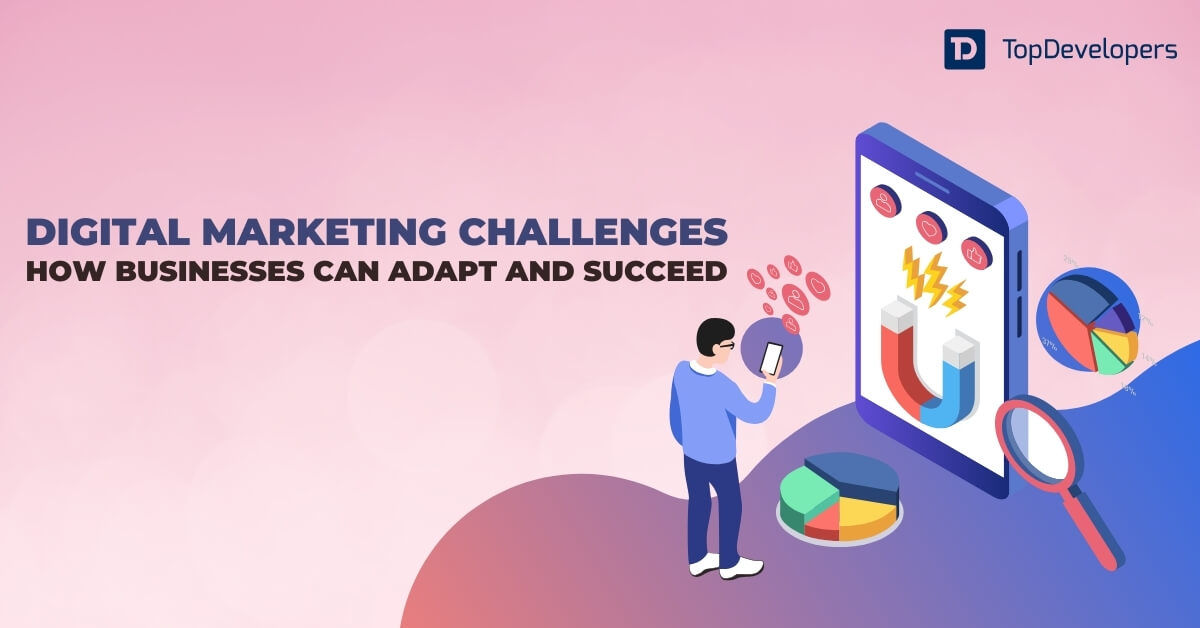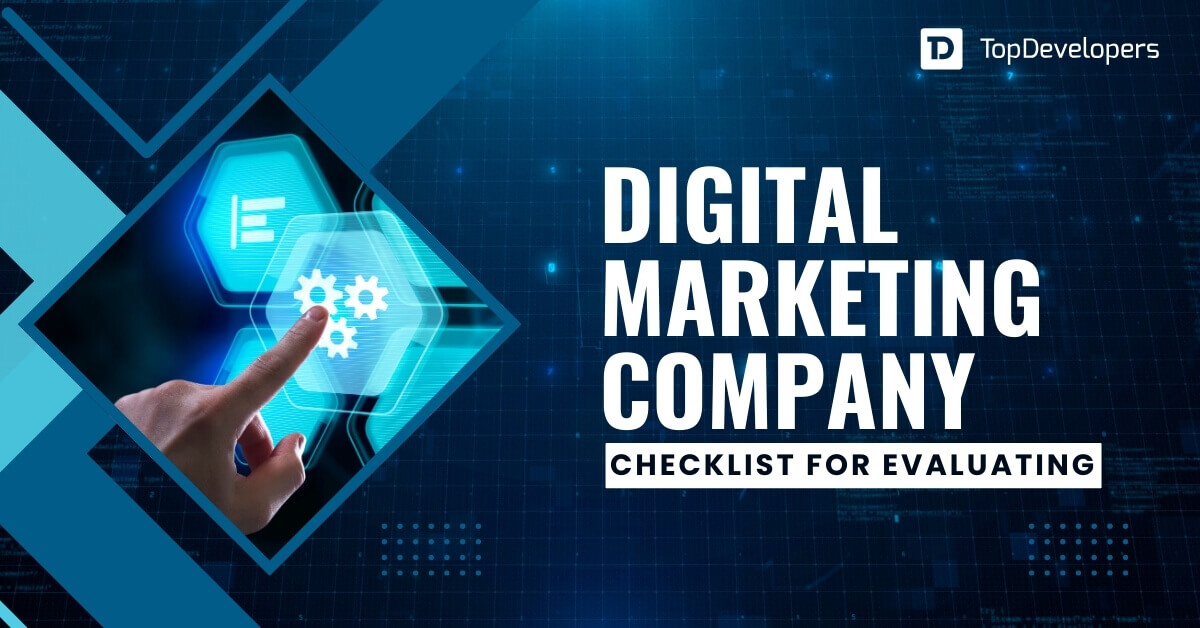
Every business today needs an effective digital presence to stay relevant, visible, and competitive. Creating a digital marketing strategy is not just about being online but about being purposeful and clear in every action taken across digital channels. With countless options available, it becomes essential to follow a structured approach that aligns business objectives with the right digital marketing efforts.
HubSpot’s 2025 State of Marketing Report highlights that 92% of marketers plan to maintain or increase investments in brand awareness, emphasizing the importance of a structured digital marketing approach. Additionally, the report notes that 21% of marketers find short-form video delivers the highest ROI, underscoring the impact of targeted digital strategies. While these figures don’t directly confirm the original statement, they do support the broader notion that investing in a defined digital marketing strategy can lead to improved business outcomes.
Effective digital marketing strategies offer clarity, direction, and measurable growth. It ensures that each campaign, post, and advertisement contributes toward a common goal. Whether it is about gaining visibility, attracting qualified leads, or increasing customer loyalty, a focused and well-thought-out digital marketing strategy makes a lasting impact.
Table of Contents
- How to Create a Digital Marketing Strategy?
- Understand What Your Business Really Needs
- Get to Know Your Ideal Customers
- Evaluate Your Current Online Positioning
- Look at What Your Competitors Are Doing Right and Wrong
- Choose Your Digital Marketing Channels Wisely
- Map Out Your Content Game Plan
- Figure Out the Budget and Team Involved
- Track Performance with Meaningful Metrics
- Keep Testing, Tweaking, and Improving
- Conclusion
How to Create a Digital Marketing Strategy?
Building a digital marketing strategy begins with a clear understanding of what a business wants to achieve and how to connect with the intended audience. It is not a one-size-fits-all approach but a tailored framework that fits the specific nature, scale, and goals of each business. The process involves thoughtful planning, careful execution, and ongoing analysis.
Each step in creating a digital marketing strategy plays a crucial role in shaping the success of online efforts. It starts with internal clarity, followed by external alignment, ensuring that every digital interaction delivers value and reinforces the business’s position in the market.
Here are the steps to begin the process to build your digital marketing strategy:
Understand What Your Business Really Needs
The foundation of any successful digital marketing strategy is built on well-defined business goals. Before selecting marketing tools or launching campaigns, it is important to determine the purpose behind the digital marketing efforts. This could include increasing brand visibility, generating leads, boosting online sales, or strengthening customer loyalty.
Establishing clear goals brings focus to the digital marketing strategy. When these goals align with the overall business vision, every decision becomes more intentional. For instance, a business aiming for fast lead generation may lean more on paid advertising, while one focused on long-term brand building may prioritize organic content and search engine visibility.
A clear roadmap helps prioritize activities, measure outcomes effectively, and ensure consistent progress.
Get to Know Your Ideal Customers
An effective digital marketing strategy speaks directly to the intended audience. To do this successfully, it is essential to understand who the ideal customers are, what they value, and how they interact online.
This involves gathering details like age, location, profession, interests, and digital habits. Creating customer profiles or personas based on this data helps shape communication style, content types, and platform choices.
Knowing the audience allows a business to create content that resonates, offers solutions that matter, and builds trust over time. Whether targeting busy professionals looking for fast solutions or young users engaging with creative content, audience insights guide every aspect of digital marketing efforts.
Evaluate Your Current Online Positioning
Before building a digital marketing strategy, it is important to understand where the business currently stands in the digital space. A digital presence audit helps identify what is working, what needs improvement, and where new opportunities might exist.
Start by reviewing the business website for usability, content quality, and search engine performance. Explore how active and engaging the social media channels are. Look into the performance of current content, such as blog posts, videos, or email campaigns. These insights provide a solid foundation for shaping the next steps.
Understanding current digital strengths and gaps helps avoid repeating past mistakes and ensures that future efforts are built on real data rather than assumptions. It becomes easier to allocate time and resources where they can make the most difference.
Look at What Your Competitors Are Doing Right and Wrong
Learning from competitors can offer valuable direction when creating a digital marketing strategy. By studying how similar businesses operate online, it becomes possible to identify what works in the industry and where gaps exist.
Explore competitor websites, review their content, observe their social media engagement, and analyze their advertising style. Pay attention to how they position their brand, the types of messages they use, and the platforms they focus on. These details can reveal opportunities to differentiate and highlight unique strengths.
Competitor research is not about imitation but about gaining awareness. It allows a business to avoid common pitfalls, adopt proven techniques, and develop an approach that is distinct and more appealing to the target audience.
Choose Your Digital Marketing Channels Wisely
Selecting the right digital platforms is a key part of creating a successful digital marketing strategy. Not every platform will suit every business, and choosing the right ones depends on where the target audience spends time and how they prefer to engage.
For some businesses, search engine optimization and content publishing may deliver long-term growth. Others may benefit more from paid online advertising on search engines or social media platforms. Channels like email, video platforms, or professional networks can also play a vital role, depending on the audience and goals.
The key is to avoid spreading efforts too thin. Focus on the channels that offer the best chance to connect meaningfully with the right people. A smart mix of organic and paid methods often helps create a balanced and effective approach.
Map Out Your Content Game Plan
Once the channels are selected, the next step is planning content that fits both the platform and the audience. A digital marketing strategy is only as effective as the message it delivers. That message needs to be consistent, clear, and valuable.
Decide on the types of content to produce, such as blog articles, videos, infographics, guides, or email newsletters. Develop a content calendar that outlines when and where content will be published. Ensure each piece supports the overall business goals, whether that means driving traffic, building trust, or encouraging conversions.
Content planning also includes tone, format, and topics. With the right structure in place, content can help build authority, engage customers, and strengthen digital presence across all channels.
Figure Out the Budget and Team Involved
A clear understanding of available resources plays a crucial role in shaping a practical digital marketing strategy. Budgeting helps determine how much can be invested in content creation, advertising, tools, and skilled professionals. This allows for balanced planning and prevents overspending.
Start by estimating costs for key activities like paid campaigns, software subscriptions, graphic design, or video production. It is also important to consider internal team capacity. If specialized skills are required, businesses may choose to partner with digital marketing professionals or agencies.
The goal is not always to spend more but to spend wisely. A well-allocated budget ensures that each digital marketing effort delivers strong value and supports long-term success.
Track Performance with Meaningful Metrics
Measuring results is essential to understanding whether a digital marketing strategy is moving in the right direction. Setting clear key performance indicators (KPIs) helps track progress, identify successful tactics, and adjust areas that may need improvement.
Metrics to consider include website traffic, engagement rates, lead generation, conversion rates, and customer retention. These key performance indicators provide real insights into how digital marketing efforts are performing across different platforms and campaigns.
Using reliable analytics tools makes it easier to collect and understand this data. Regular performance reviews support smarter decisions and continuous improvement, helping the strategy stay aligned with business goals.
Keep Testing, Tweaking, and Improving
A digital marketing strategy is never a one-time plan. Continuous testing and refinement are necessary to stay effective in a changing digital landscape. Markets evolve, audience behavior shifts, and platform algorithms change. Adapting to these changes ensures that digital marketing efforts remain impactful.
Start by experimenting with different content formats, messages, and campaign structures. A/B testing, for example, allows for comparing variations of ads, emails, or landing pages to see what performs best. Even small changes can lead to better engagement or higher conversions.
By regularly reviewing performance and making data-driven adjustments, a business can avoid stagnation and discover new opportunities for growth. The process of testing and improving keeps the digital marketing strategy flexible, fresh, and aligned with current trends and goals.
Conclusion
A digital marketing strategy offers more than just a plan to reach customers online. It provides clarity, direction, and purpose in a landscape filled with constant movement. For businesses, this strategy becomes a reliable tool that supports sustainable growth, sharper communication, and stronger positioning in the market.
When each step is guided by insights, aligned with business goals, and shaped by the needs of the audience, the result is a strategy that not only performs but evolves. Continuous improvement, clear measurement, and strategic thinking turn digital efforts into long-term value.
Top digital marketing companies build their reputation not only on results but on the ability to adapt and respond to real business challenges. For any business, understanding and applying the same mindset makes it possible to compete effectively, remain visible, and stay ahead of changing trends.
 Avantika Shergil
| Apr 7, 2025
Avantika Shergil
| Apr 7, 2025
Avantika Shergil is a technology enthusiast and thought leader with deep expertise in software development and web technologies. With over 8 years of experience analyzing and evaluating cutting-edge digital solutions, Avantika has a knack for demystifying complex tech trends. Her insights into modern programming frameworks, system architecture, and web innovation have empowered businesses to make informed decisions in the ever-evolving tech landscape. Avantika is passionate about bridging the gap between technology and business strategy, helping businesses build customized software and website, and understand about different tools to leverage effectively for their ventures. Explore her work for a unique perspective on the future of digital innovation.





